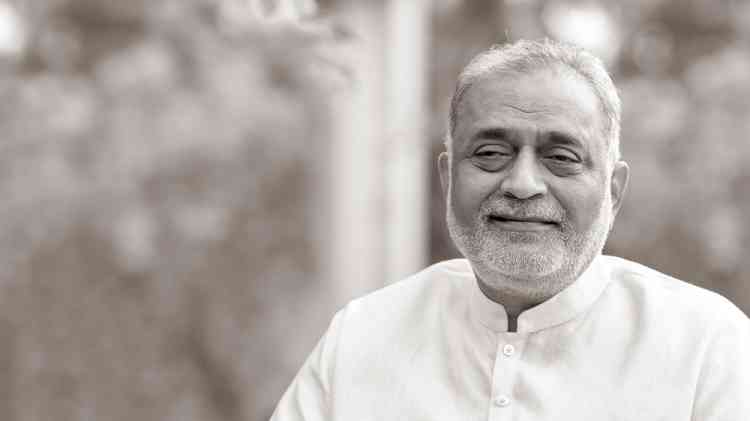UNEP recognizes Shri Ram Chandra Mission (Heartfulness Institute) for its contribution to climate action
Daaji calls for inclusion of Zero thought pollution in list of SDGs for betterment of humanity

Mumbai: United Nations Environment Program (UNEP), under its Faith for Earth and United Religions Initiative (URI), has recognized the Shri Ram Chandra Mission (Heartfulness Institute) for being champions of sustainability and environment conservation on the context of World Environment Day, on 5th June 2021. President of Shri Ram Chandra Mission and Founder of Heartfulness, Kamlesh D Patel (Daaji), was felicitated as Faith for Earth Councilor for climate action - ecosystem restoration, for the year 2021-2022. Shri Ram Chandra Mission (Heartfulness Institute) was recognized for its ambitious initiative Forests by Heartfulness, an extensive outreach program towards afforestation, biodiversity and eco-system restoration.
Each year, the UNEP Faith for Earth Initiative recognizes significant contributions towards the cause of sustainability and environment conservation in areas such as clean water, climate action, ecosystem restoration, sanitation, responsible production and consumption etc. Through this initiative, UNEP aims to encourage and engage with faith-based organizations as partners, to achieve the sustainable development goals (SDGs) by 2030.
The Forests by Heartfulness initiative is a massive pan India green movement to revive and propagate India’s Mega biodiversity by planting 30 million native and endemic species across India by 2030. Shri Ram Chandra Mission (Heartfulness Institute) has also established nurseries in 18 cities across India for this cause. Through its environmental wing and 30 years of forestry experience under its belt, Heartfulness curated a team of experts to analyze forestry models, irrigation practices, water treatment practices, and models to regenerate degraded lands, to ensure truly sustainable methods for this drive. The long-term vision for the Forests by Heartfulness initiative is to partner with citizens, NGOs, youth organizations and farmers to create a green movement across India.
Addressing the audience at the UNEP felicitation ceremony, Daaji said, “The core of Heartfulness is built on sustainability, balance and simple living for betterment of humanity. As we bring sustainability into our environments, it’s important to note that Inner pollution of the psyche defined as vrittis in Sanskrit by Sage Patanjali is the root cause of all pollutions. Along with the SDGs by UNEP, I recommend adding Zero thought pollution as a crucial goal for 2030 to achieve harmony and peace in the world.”
To celebrate the World Environment Day 2021, Shri Ram Chandra Mission (Heartfulness Institute) has initiated a movement called ‘It’s Forward into Nature’ to raise awareness on environment conservation among the youth. Shri Ram Chandra Mission (Heartfulness Institute) celebrated a virtual green awareness week which included nature art competitions, featured balcony gardens, shared home composting stories, nature storytelling activities, and a virtual forest walkthrough. The awareness week celebrates those who took their first steps to bring nature into their homes. Gardening and spending time with nature has been a welcome respite for many during the pandemic and lockdown situation.
The Heartfulness Green movement envisions model spaces, where humankind and nature can co-exist in harmony, where humankind is able to learn from nature, integral to its balanced evolution. In 2017, Heartfulness established the Green Kanha Movement, at their spiritual retreat center at Kanha Shantivanam in Hyderabad. Heartfulness restored a dry barren land into a lush green space, that is the world’s largest meditation center today. The organization is actively championing and working towards the UN sustainability goals for 2030, across all its global centers, in 160+ countries.


 cityairnews
cityairnews 










